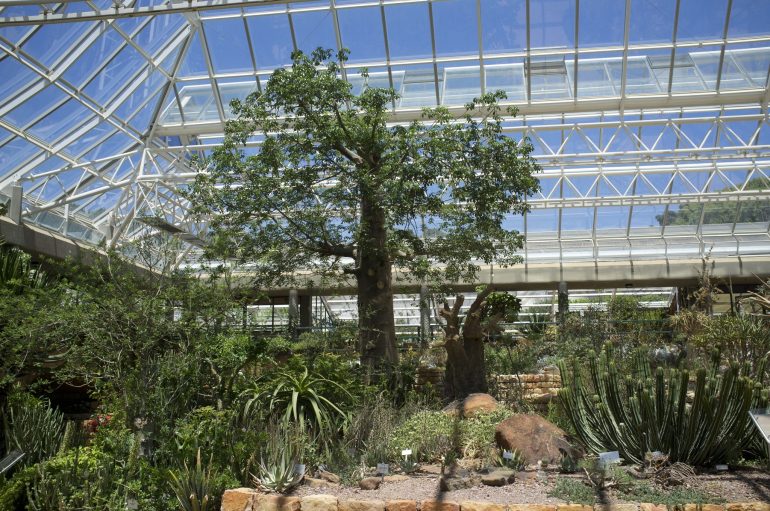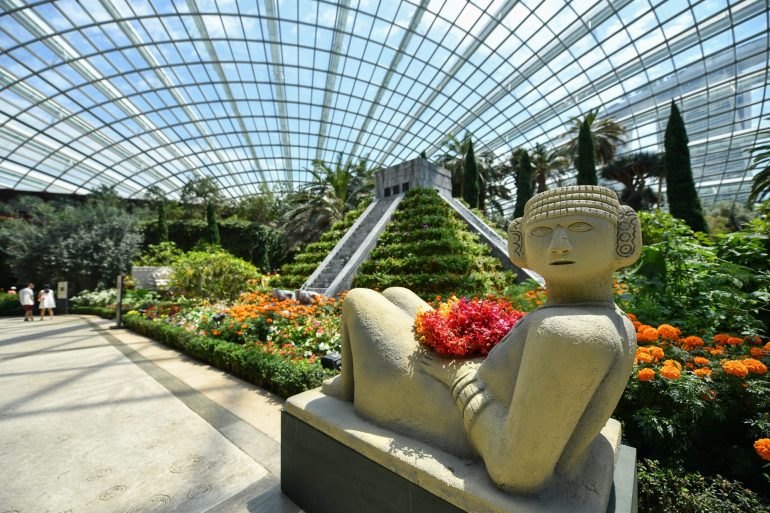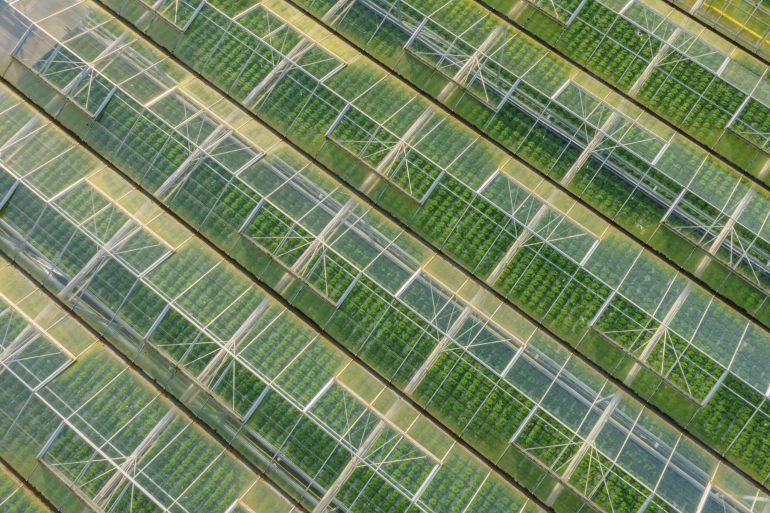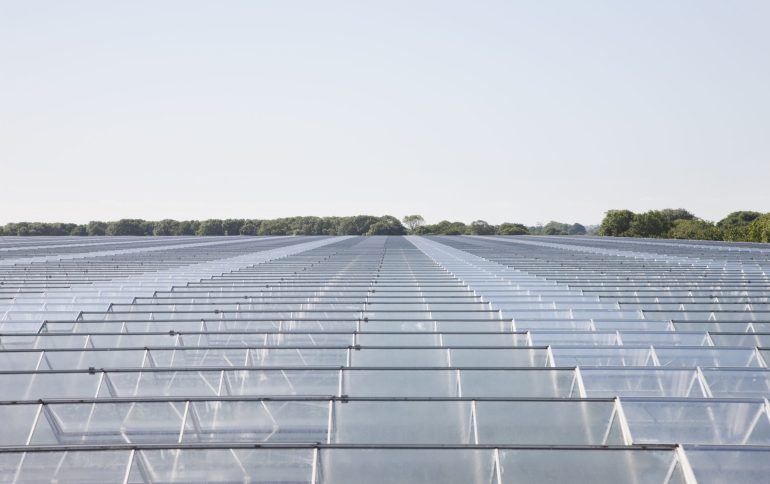The world’s biggest greenhouses serve as a monumental stage where the future of agriculture is shaped. These colossal structures encapsulate an era of precision, efficiency, and prodigious yield – enabling the magic of growing food using only a sliver of the water, land, and resources that traditional farming methods demand. Alongside the largest commercial greenhouse in the world, the sheer scale of the world’s largest greenhouses take this purpose to stratospheric levels.
Beyond their capacity to facilitate sustainable farming, these horticultural havens serve as living laboratories, teaching us about ecology, botany, and environmentally responsible technology. They’re quickly becoming integral to our pursuit of a carbon-neutral future. The scientists within their glass walls are developing future-proof farming techniques, accelerating plant breeding programs, and pioneering novel ways to conserve water and energy. And our understanding of how to cultivate plants for maximum yield and minimal environmental impact is expanding.
The contenders for the title of largest glass greenhouse in the world are physical manifestations of the adage ‘think globally, act locally’. A testament to a vision where sustainability and productivity can walk hand in hand. In this article, the biggest greenhouses in the world are measured in square metres, and includes greenhouse complexes as well as single entities.
Botanical Society Conservatory

Botanical Society Conservatory, Kirstenbosch (Photo by: Education Images/Universal Images Group via Getty Images)
Location: Cape Town, South Africa | Opened: 1996 | Size: Approx. 1,600 m2
On the eastern slope of Table Mountain is the Kirstenbosch National Botanical Garden. Opened in 1913, it was the first botanical garden in the world to focus on preserving native flora. The conservatory is divided into areas by climate and location, and contains plants from South Africa’s diverse landscape including savannah, natural shrubland known as fynbos, and semi-desert regions called karoo.
Temperate House

Inside the Temperate House, Royal Botanic Gardens at Kew (Photo by Peter Dazeley via Getty Images)
Location: Kew, UK | Opened: 1863 | Size: Approx. 4,900 m2
One of the UK’s most iconic structures, the Temperate House at the Kew Royal Botanical Gardens may not be the world’s largest greenhouse but is arguably one of the most beautiful. It’s filled with over 10,000 plants from over 1,500 species native to Africa, the Americas, Australia and New Zealand, and the Pacific Islands. Much of the work done in the Temperate House is to rescue and revitalise plants that are rare or even extinct in the wild, and to find solutions to some of the world’s most pressing issues, including climate change, biodiversity loss and food security.
Flower Dome

The Flower Dome, Garden by the Bay, Singapore (Photo by Sanka Vidanagama/NurPhoto via Getty Images)
Location: Gardens By The Bay, Singapore | Opened: 2012 | Size: Approx. 12,000 m2
The largest glass greenhouse in the world is covered with 3,332 glass panels and features a stunning and ever-changing flower field. It has eight further gardens including the Mediterranean Garden, Olive Grove, Australian Garden and the Baobabs, which are some of the most fascinating trees in the world. The roof is fitted with a very particular type of glass which allows for maximum light yet minimal heat, so the dome can be cooled more efficiently.
Lufa Farms

Operations At Lufa Farms Rooftop Greenhouse. (Credit: Bloomberg / Contributor via Getty Images)
Location: Montreal, Canada | Opened: 2011 | Size: Approx. 15,200 m2
Husband and wife team Mohamed Hage and Lauren Rathmell built the world’s first rooftop greenhouse on top of an old warehouse, a contender for the largest commercial greenhouse in the world. They sustainably grow about 11,000 kg of fruits and vegetables every week including salads, celery, watermelon, peaches, tomatoes, aubergines and brussel sprouts. They sell 20,000 mixed baskets per week for around $30 (approximately £18).
Eden Project
Location: Cornwall, UK | Opened: 2001 | Size: Approx. 16,000 m2
Located in a reclaimed clay pit close to the town of St Austell, the Eden Project is home to two greenhouses, known as biomes. The larger of the two, the Rainforest Biome, is believed to be the world’s largest greenhouse as well as the largest indoor rainforest in the world. It’s home to over 1,000 plant varieties from Southeast Asia, Africa and tropical South America including rubber, cacao and banana trees, cacao groves and the rare Titan arum – which flowers for just two days a year and is famous for its foul smell!
Royal Greenhouses of Laeken

The orangerieis at the Palace of Laeken, Brussels, Belgium.(Credit: Thierry Monasse via Getty Images)
Location: Brussels, Belgium | Opened: 1880 | Complex Size: Approx. 25,100 m2
Located in the private gardens of Belgium’s royal family, the Royal Greenhouses of Laeken are a complex of tropical, subtropical and cold greenhouses built for King Leopold II in the late nineteenth century. Designed by Belgian architect Alphonse Balat, the round-domed Winter Garden is a contender for the largest greenhouse in the world. The other Balat-designed structures include the Palm, Congo, and Diana greenhouses. The opulent Embarcadère Greenhouse is supported by Corinthian columns and decorated with Oriental vases and statues by famous Belgian sculptor Charles Van der Stappen.
Thanet Earth

Drone view onto a row of greenhouses. (Credit: Justin Paget via Getty Images)
Location: Kent, UK | Opened: 2008 | Size: Approx. 890,300 m2
Thanet Earth is the UK’s largest consortium of greenhouse complexes with a total size of almost 900,000 square metres. It’s also home to what is possibly the largest commercial greenhouse in the world at approximately 60,000 square metres. Annually, the complex is said to produce somewhere in the region of 400 million tomatoes, 24 million peppers and 30 million cucumbers.
Tropicalia

A view of greenhouses in rural landscape. (Credit: Tom Merton via Getty Images)
Location: Cote d’Opale, France | Opening: Approx. 2024 | Size: Approx. 20,000 m2
When it opens, Tropicalia in northeastern France will be the world’s largest single-domed greenhouse and a contender for the title of largest greenhouse in the world. Said to be costing over $60 million, the mission of the ambitious project is to raise awareness about respect for nature in a unique and sustainable tropical environment. The immersive experience will lead visitors on a 1,000 metre path through orchid valleys, bamboo forests and through the Forest of Mist where they’ll meet a microfauna of tree frogs, lizards, birds and many other creatures.











